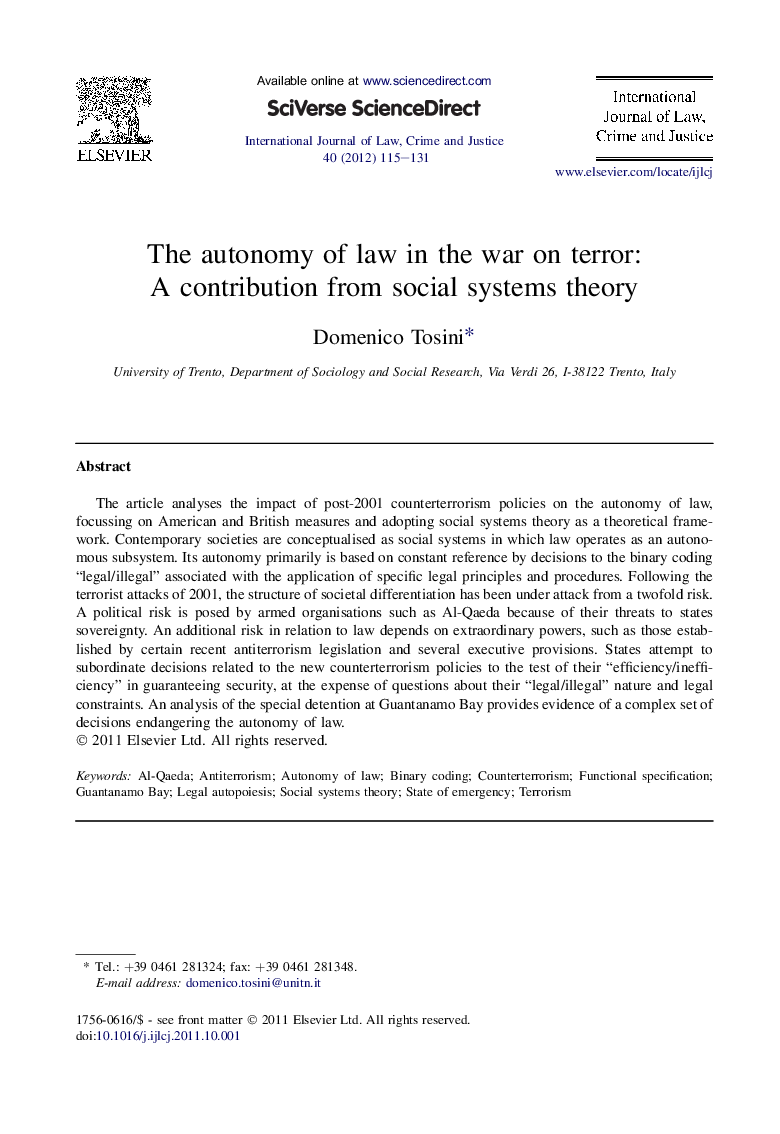| Article ID | Journal | Published Year | Pages | File Type |
|---|---|---|---|---|
| 1098013 | International Journal of Law, Crime and Justice | 2012 | 17 Pages |
The article analyses the impact of post-2001 counterterrorism policies on the autonomy of law, focussing on American and British measures and adopting social systems theory as a theoretical framework. Contemporary societies are conceptualised as social systems in which law operates as an autonomous subsystem. Its autonomy primarily is based on constant reference by decisions to the binary coding “legal/illegal” associated with the application of specific legal principles and procedures. Following the terrorist attacks of 2001, the structure of societal differentiation has been under attack from a twofold risk. A political risk is posed by armed organisations such as Al-Qaeda because of their threats to states sovereignty. An additional risk in relation to law depends on extraordinary powers, such as those established by certain recent antiterrorism legislation and several executive provisions. States attempt to subordinate decisions related to the new counterterrorism policies to the test of their “efficiency/inefficiency” in guaranteeing security, at the expense of questions about their “legal/illegal” nature and legal constraints. An analysis of the special detention at Guantanamo Bay provides evidence of a complex set of decisions endangering the autonomy of law.
